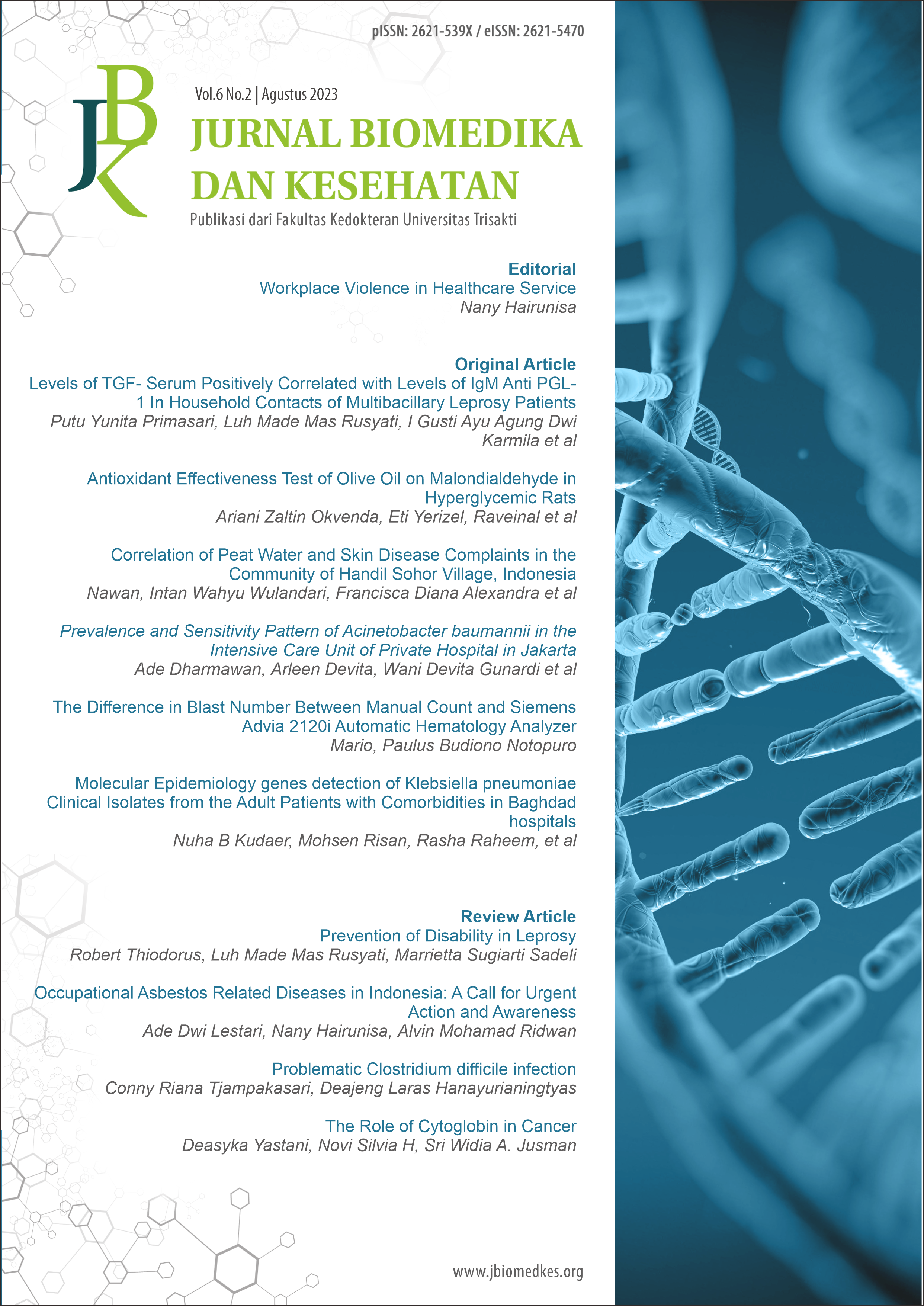Problematic Clostridium difficile infection
Infeksi C. difficile
DOI:
https://doi.org/10.18051/JBiomedKes.2023.v6.235-249Keywords:
Clostridium difficile, diagnosis, diarrhea, toxinAbstract
Clostridium difficile is a Gram-positive, strictly anaerobic, spore-forming bacterium. The
virulence factor of this bacterium is the toxins it produces, namely enterotoxin A (TcdA ) and
cytotoxin B (TcdB). Transmission occurs fecally orally by ingesting the spores of this bacteria.
Clostridium difficile is the most common cause of fulminant-associated in hospitals and other
healthcare facilities and is of significant concern because of the increasing morbidity and
mortality rates as well as increased healthcare costs. Elderly patients or patients with
compromised immune systems are patients at the highest risk for this case. Clostridiosis present a
varied spectrum of infection, ranging from self-limited diarrhea, mild to moderate diarrhea, to
serious diarrhea, pseudomembranous colitis, and life-threatening fulminant colitis which can be
life-threatening and can cause death. The diagnosis is made by direct detection of Clostridium
difficile toxin in the feces. Although empiric therapy known as vancomycin and fidaxomycin have
been used as the antibiotic choice, prompt identification of patients with symptoms of
Clostridium difficile infection is very important because most patients respond quickly to
antimicrobial therapy. may result in death. Prompt identification of patients with symptomatic
Clostridium difficile infection is essential as the majority of patients respond quickly to
antimicrobial therapy. Prevention is best achieved by implementing infection control measures
and appropriate use of antimicrobial agents. Health professional education regarding preventive
measures such as hand washing, wearing gloves, decontamination of medical equipment, and the
proper environment is highly recommended.
Downloads

Downloads
Published
How to Cite
Issue
Section
License
Copyright (c) 2023 Conny Riana Tjampakasari

This work is licensed under a Creative Commons Attribution-NonCommercial 4.0 International License.
The journal allow the authors to hold the copyright without restrictions and allow the authors to retain publishing rights without restrictions.
